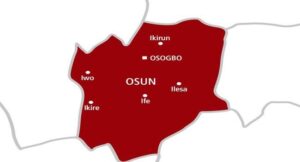UBEC Grants: A vital tool for improving Nigeria’s education system
The stark reality of Nigeria’s education system is once again brought to the forefront with the recent revelation that a staggering 29 states in Nigeria have failed to access a total of N68.7 billion in Universal Basic Education funds due to their failure to provide counterpart funding highlights the underdevelopment of education in the country.
In contrast, only seven states have paid the required amount to access the grant for the advancement of primary education in their respective states in 2023.
This indifference from governors towards investing in human capital at the grassroots level is concerning, and it is imperative that these governors change their approach.States such as Niger, Osun, Taraba, Sokoto, Ondo, Ekiti, and Jigawa have prioritized and sustained investment in primary education by fulfilling the necessary requirements to receive grants provided by the Federal Government under the UBE program.
However, many other states, including Lagos, Ogun, Rivers, Akwa Ibom, Anambra, Enugu, Borno, Gombe, Kano, Kaduna, and Kwara, have neglected this responsibility. While the constitution primarily assigns the responsibility of primary education to the states, the Federal Government, through UBEC, contributes to standards, infrastructure, teaching facilities, and teacher training.
Unfortunately, many governors remain detached from this scheme, resulting in child labour, high rates of out-of-school children, juvenile delinquency, child begging, and child marriages in Nigeria.According to UNESCO, Nigeria has the second-highest rate of out-of-school children in the world, with 20.2 million children affected, second only to India.
UNICEF also reports that one in five out-of-school children globally resides in Nigeria, and over 3.3 million students drop out of school before reaching junior secondary school.It is crucial that the governors who have neglected their responsibilities towards primary education in their states take immediate action to rectify this situation.
Investing in education is not only a constitutional obligation but also a fundamental step towards securing a brighter future for Nigerian children and the overall development of the country..
In a thought-provoking study published in 2022 by the International Journal of Integrated Education, a strong correlation was found between the alarming rates of school drop-outs and various factors such as inadequate funding for education, rampant corruption, ineffective implementation of the Child’s Rights Act, lack of political determination to address these issues, widespread poverty, and a high fertility rate.
Shockingly, UNICEF reported that a staggering 11,536 schools in the Northern region were forced to shut down between December 2020 and April 2022 due to escalating insecurity.To reverse this disheartening trend, it is imperative for state governors to actively engage with all stakeholders involved in the education sector.
They must prioritise the provision of free primary education, establish safe and conducive learning environments, and ensure the deployment of a dedicated and motivated teaching workforce.
Additionally, the governors should take the necessary steps to domesticate and enforce the Child’s Rights Act, which mandates nine years of compulsory schooling, and contribute their fair share of funding to access the Universal Basic Education (UBE) funds. Furthermore, state legislatures hold a crucial responsibility in fulfilling their oversight duties by ensuring transparent and accountable utilization of these funds.
It is disheartening to recall that in 2019, the Economic and Financial Crimes Commission (EFCC) accused a former governor of diverting billions of naira allocated by the UBE Commission to a state in the North-East. Unfortunately, due to the political dynamics surrounding the leadership of the Ninth National Assembly, the case was eventually dropped.
Let us not forget that primary education serves as the foundation of any successful national literacy program. Beyond the fundamental skills of reading, writing, numeracy, and technology proficiency, it equips children with critical thinking abilities, negotiation skills, the art of dialogue, productivity, and self-awareness, as numerous studies have demonstrated.
In a momentous development, during the 53rd session of the UN Human Rights Council in June 2023, a remarkable 73 countries recognised education as a fundamental human right.
They renewed their commitment to providing “free, quality, and inclusive education for all children from preschool through secondary school, ensuring its adequate funding.”
It is incumbent upon the governors to wholeheartedly implement this global consensus and prioritise the fulfillment of this essential right for every child.In conclusion, it is time for a transformative approach to address the challenges plaguing primary education in Nigeria.
State governors must rise to the occasion, embracing innovative strategies, and working hand in hand with all stakeholders to create a brighter future for our children.
Only through collective efforts and unwavering commitment can we ensure that every child receives the education they deserve, empowering them to thrive and contribute meaningfully to society.
Nigeria’s literacy rate currently ranges from 69 to 77.9 percent, according to the National Bureau of Statistics and Global Data. This low literacy rate poses a significant threat to sustainable development in the country. It creates a vulnerable population that can be easily influenced by terrorists and religious extremists. To address this issue, state governors must prioritise the implementation of the Compulsory, Free, and Quality Primary Education Act and ensure that every child has access to education.
It is imperative that the governors take immediate action to rectify the deficit in UBE counterpart funding, and the seven states must continue to adhere to the regulations.




